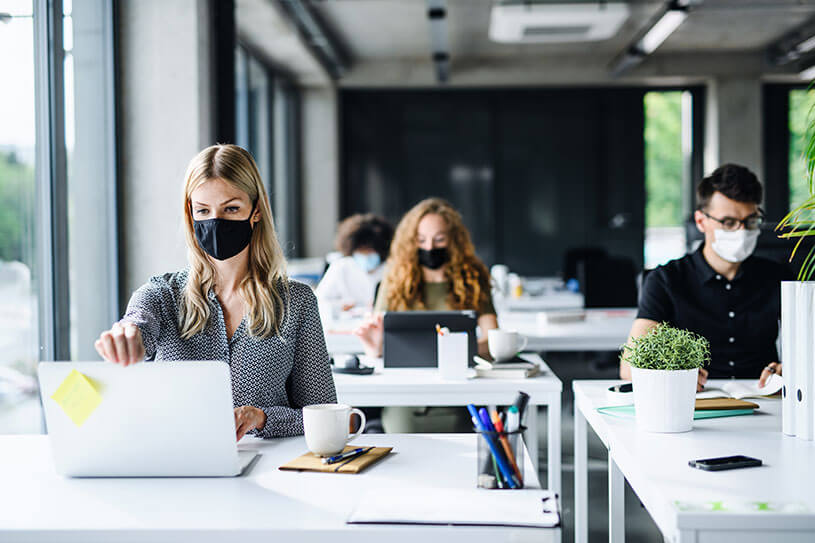As an employer you have a legal responsibility to protect your employees from health and safety risks. Already have a risk assessment in place? A coronavirus-specific template can help you stay aware of any risks. Keep reading for more on who it applies to, and when you might need it.
Use a coronavirus risk assessment to help your employees, clients, and any visitors to your business premises minimise any health and hygiene risks.
Covid-19 business risk assessments: why are they important?
A structured assessment template gives you practical guidance. You can start working this into your activities straightaway or when needed, preparing your business for the near future.
From staggering shifts to new hand-washing facilities, your coronavirus risk assessment should give you the confidence to work safely.
Does my business need a risk assessment?
The government has removed coronavirus restrictions but you must still control the risks and update your risk assessment. While social distancing measures no longer apply and the government is no longer instructing people to work from home, you should still keep your workplace safe with:
- adequate ventilation
- sufficient cleaning
- good hand hygiene
You might also consider limiting the number of people your workers are in contact with (for example staggering shifts), encouraging face coverings in busy areas, and workplace testing.
Here are a few of the key business areas where a thorough Covid-19 risk assessment should be considered:
Shops, branches, and retailers
By definition, shops are built for visitors. Whether that’s customers, suppliers, salespeople, delivery services, or employees, everyone’s needs should be factored in and kept safe accordingly.
Construction and other outdoor work
This kind of work is wide-ranging and includes people in construction, energy and utilities, forestry, street, highway and railway services, farming and agriculture, waste management, and other infrastructure.
Risk assessments will already be part of your day-to-day business life, but these should be reviewed against Covid-19 guidelines, and updated where necessary.
Restaurants, pubs, bars and takeaway services
Since the government’s relaxed rules on social distancing, it’s now up to the venue how you manage the risk (for example, improving ventilation).
Factories, plants and warehouses
Again, any existing risk assessments you have in this sector should include specific coronavirus guidance. The government highlights manufacturing and chemical plants, food plants, warehouses, distribution centres, and port operations within this group.
Offices
Whether you’re a small office-based accountancy firm or your business also runs a contact centre or operations room, you’re legally required to keep employees and visitors safe while on your premises.
If you work in other people’s homes
This will cover a huge number of small businesses, and the government acknowledges the complex environment you’re working with. The general advice is to communicate with households before any visits to discuss how the work will be carried out.
The guidance for different types of work can be found in full on the government’s working safely during coronavirus pages.
More useful articles for small business owners
- Small business grants – everything you need to know
- A guide to health and safety for small businesses
- How to write a staff handbook
- What is business insurance?
Is your Covid-19 risk assessment template up to date? Let us know in the comments below.
Ready to set up your cover?
As one of the UK’s biggest business insurance providers, we specialise in public liability insurance and protect more trades than anybody else. Why not take a look now and build a quick, tailored quote?
Photo: Halfpoint/stock.adobe.com
